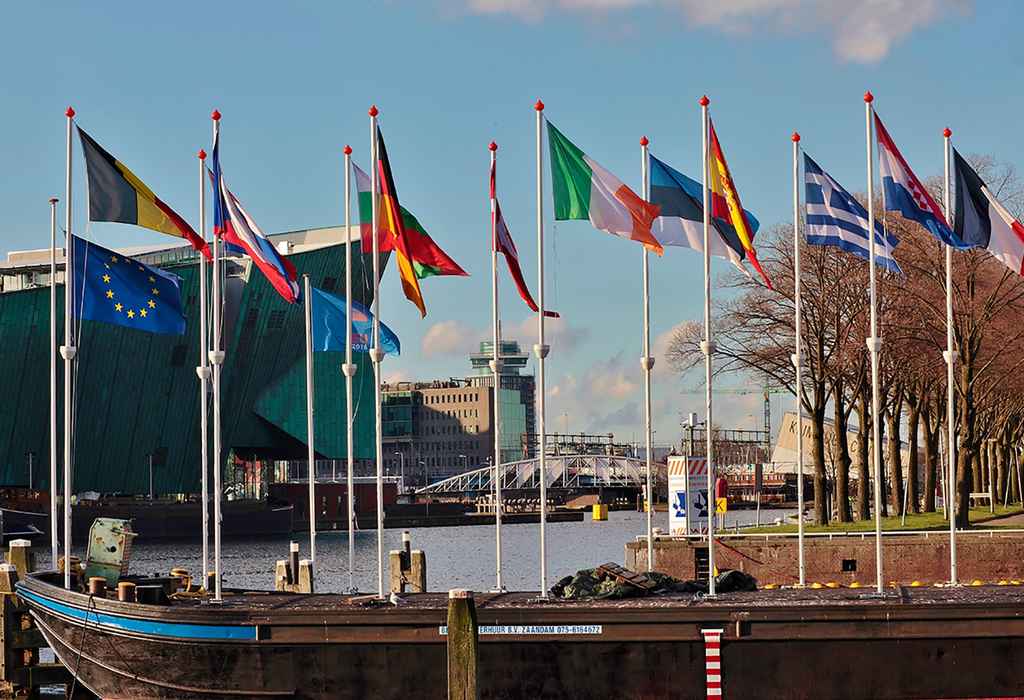Dr. D.A. (Dana) Brablecova PhD
- Kloveniersburgwal 48
-
Postbus 94554
1090 GN Amsterdam
-
Research interests
Dana Brablec is an Assistant Professor in Race, Decoloniality and Intersectionality at the University of Amsterdam. She holds a PhD in Sociology from the University of Cambridge. Before joining UvA, Dana worked as an Affiliated Lecturer and Special Supervisor in Sociology at the University of Cambridge. She was also a post-doctoral researcher working on the project “Borders, boundary mechanisms and migration”, based at Bangor University and the Wales Institute of Social and Economic Research and Data (WISERD).
Dana’s recent research focuses on Indigenous urbanisation. She is particularly interested in the different practices followed by the Mapuche in Chile to collectively re-construct their identity in cities after rural-to-urban migration and the role that the (postcolonial) state plays in this process. Her research also engages with issues around race and racism, looking at different Latin American populations as well as the European Roma and Traveller communities, especially in the Czech Republic and the UK. Dana has also engaged in discussions around environmental racism, intersectional discrimination (race, class, gender, etc.), identity building, Latin American political affairs, and urban sociology.
Dana is fluent in English and Spanish.
-
Projects
1. “Borders, boundary mechanisms and migration – Wales Institute of Social and Economic Research and Data (wiserd.ac.uk)” This project examines factors shaping civil society engagement with migration and forms of bordering through comparative international case studies and place-based ethnographies and explores how social boundary activation mechanisms are articulated by civil society groups.
2. “Urban Indigeneities: Being Indigenous in the 21st Century”. Edited volume under contract with Arizona University Press (together with Professor Andrew Canessa). “Urban Indigeneities” brings together interdisciplinary theoretical positions, including those from cultural, Indigenous, development, postcolonial, gender, and urban studies. The main questions that frame the chapters included in the book are: what does it mean to be Indigenous in the contemporary cities of the world? And, how are Indigenous peoples challenging conceptions of belonging in the wake of increasing global urbanisation? The volume takes on the ambitious task of removing the layers of invisibility that urban Indigenous peoples face, thus highlighting various aspects of their contemporary life in different cities worldwide.
3. “Female Urban Indigenous Entrepreneurship: Towards an Economic Sovereignty with Cultural Relevance in the City”. This project analyses female urban Indigenous entrepreneurship in Latin America to understand innovative economic approaches to resist poverty and advance towards sustainable cities with identity and gender equality.
4. “Towards a sustainable city through urban community gardens”: This project looks at eco-gardens created by diverse communities, including Indigenous and marginalised groups (migrants), to change their experience of the city in Latin American and European countries. From a comparative perspective, the project explores experiences of urban belonging with environmental sustainability perspectives, highlighting the key role of green spaces for a ‘good city’ in a double sense: Good for its dwellers and good for the climate.
-
Publications (selection)
Brablec, D. Who Counts as an Authentic Indigenous? Collective Identity Negotiations in the Chilean Urban Context - 2021- Sociology.
Brablec, D. (2021). [Review of the book Sovereign Entrepreneurs: Cherokee Small-Business Owners and the Making of Economic Sovereignty, by Courtney Lewis]. Native American and Indigenous Studies 8(2), 213-215.
Brablec, D. (2018). Pituto. In Alena Ledeneva (Ed.), The Global Encyclopaedia of Informality, Volume 1 – UCL Press, (pp.52-54).
-
Publications
2023
- Brablecova, D. A. (2023). From nanas to presidentas: Leadership trajectories of Mapuche women within Indigenous associations in Santiago de Chile. In Urban Indigeneities: Being Indigenous in the 21st Century. (pp. 119-143). University of Arizona Press.
- Brablecova, D. A. (2023). Introduction: Indigenous Peoples in the Cities of the World. In Urban Indigeneities: Being Indigenous in the 21st Century. (pp. 3-28). University of Arizona Press.
- Brablecova, D. A. (2023). The neoliberal multicultural state and the urban Indigenous associative model in Santiago de Chile. British Journal of Sociology. https://doi.org/10.1111/1468-4446.13055
- Brablecova, D. A., & Canessa, A. (Eds.) (2023). Urban Indigeneities: Being Indigenous in the 21st Century. University of Arizona Press.
2021
- Brablecova, D. A. (2021). Indigenous Language Revitalisation: Mapuzungun Workshops in Santiago de Chile. Bulletin of Latin American Research, 41(1), 69-84. https://doi.org/10.1111/blar.13291
2020
- Brablecova, D. A. (2020). Indigenizing the City Together: Ethnic Place Production in Santiago de Chile. Journal of Ethnic and Migration Studies, 49(3), 892-908. https://doi.org/10.1080/1369183X.2020.1814711
- Brablecova, D. A. (2020). Who Counts as an Authentic Indigenous? Collective Identity Negotiations in the Chilean Urban Context. Sociology, 55(1), 129–145. https://doi.org/10.1177/00380385209154
2019
- Brablecova, D. A. (2019). Relational Goods and Endurance of Voluntary Associational Participation: The Case of the Indigenous Mapuche in Santiago de Chile. Bulletin of Latin American Research, 38(2), 222-236. https://doi.org/10.1111/blar.12837
Talk / presentation
- Brablecova, D. (speaker) (2023). Futures of Everyday Democratic Citizenship Workshop, University of Leeds.
- Brablecova, D. (speaker) (2022). Invited speaker: Indigenous language revitalisation in Santiago de Chile: The complexities in the development of Mapudungun workshops in the city., University of Toronto.
Others
- Brablecova, D. (participant) & Canessa, A. (organiser) (2024). RC21: The politics and spaces of encounters: advancing dialogues between and within the Global North and the Global South., Santiago. Panel 8. Reframing urban Indigenous realities: Challenges and agencies in cities (organising a conference, workshop, ...).
This list of publications is extracted from the UvA-Current Research Information System. Questions? Ask the library or the Pure staff of your faculty / institute. Log in to Pure to edit your publications. Log in to Personal Page Publication Selection tool to manage the visibility of your publications on this list. -
Ancillary activities
No ancillary activities
